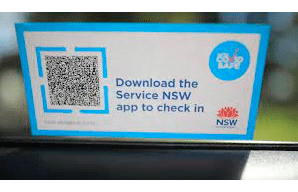New South Wales has banned Police from accessing QR Code Data after a spate of cases where it data was used to investigate crimes.
The bill was championed by a number of politicians and successfully passed both houses of NSW parliament.
Concerns were raised in a number of states which has led to legislation passing to strengthen privacy protections.
Can Police Access QR Code Data in NSW?
Police can no longer access QR code data.
The Service NSW (One-stop Access to Government Services) Amendment (COVID-19 Information Privacy) Bill passed the upper house on Friday, 19 November 2021.
It had passed the lower house earlier in November 2021.
The bill sought to strengthen privacy protections behind the Service NSW app by preventing QR check-in data from being used or disclosed other than for the “purposes for which it was collected”.
This effectively means that Police are prevented from using the data for investigative purposes.
Prior to the bill passing, the NSW government used provisions within the public health orders – an administrative provision that can be changed by the health minister of the day – to prevent law enforcement from accessing the data.
This was seen as a less effective measure at preventing the use of QR code data for ulterior purposes.
Can Police Access QR Code Data in Australia?
In other parts of Australia, states have also imposed restrictions on Police accessing QR code data.
Police in both Western Australia and Victoria attempted to access check-in app data, leading to similar legislative reforms.
Western Australia was the first to tighten restrictions on the use of data. They passed laws to address QR code data privacy concerns in June 2021.
Victoria passed legislation that imposed restrictions on the use of data in its Pandemic Management Bill.
Support for QR Code Data Privacy Protections
There has been widespread support for the QR code data privacy protections after the NSW Privacy Commissioner recommended the legislative changes in early November 2021.
NSW Digital Minister Victor Dominello moved to introduce the bill after this.
“The bill takes the long-standing position that check-in data is to be used only for the purpose it was collected, for contact tracing, and enshrines it in legislation,” he said introducing the bill.
“It will ensure that information cannot be accessed for secondary purposes, including for law enforcement and by use of a warrant.”
Greens MLC David Shoebridge, also spoke in support of the bill and suggested it would “move protections that… can be changed at the whim of the health minister, and place them within primary legislation”.
“Usefully, the provisions of the bill will have effect despite any other law, including a warrant. So the police cannot obtain information by warrant. That is one of the key reasons we support this bill,” he added.
Illegally Obtained Evidence
If Police were to access and attempt to use QR code data in prosecuting a person for a crime, there is legislation that may allow its use.
Pursuant to Section 138 of the Evidence Act 1995, evidence that was obtained improperly or in contravention of an Australian law; or in consequence of an impropriety or of a contravention of an Australian law can be admitted if the desirability of admitting the evidence outweighs the undesirability of admitting evidence that has been obtained in the way in which the evidence was obtained.
There a number of factors that the Court will consider in deciding whether to admit the evidence or not. Experienced criminal lawyers will be able to assess the likelihood of the evidence being admitted, however some of the factors that the Court will consider include:
- the probative value of the evidence; and
- the importance of the evidence in the proceeding; and
- the nature of the relevant offence, cause of action or defence and the nature of the subject-matter of the proceeding; and
- the gravity of the impropriety or contravention; and
- whether the impropriety or contravention was deliberate or reckless; and
- whether the impropriety or contravention was contrary to or inconsistent with a right of a person recognised by the International Covenant on Civil and Political Rights; and
- whether any other proceeding (whether or not in a court) has been or is likely to be taken in relation to the impropriety or contravention; and
- the difficulty (if any) of obtaining the evidence without impropriety or contravention of an Australian law.
If the QR code data were central to a prosecution, and the offence a person has been charged with is very serious, police may be able to admit the evidence under this provision.
However, given the very strict laws now in place to prevent access to QR code data for police investigation, there would be a strong argument for that evidence to be excluded.
Source: https://astorlegal.com.au/police-banned-from-accessing-qr-code-data/




